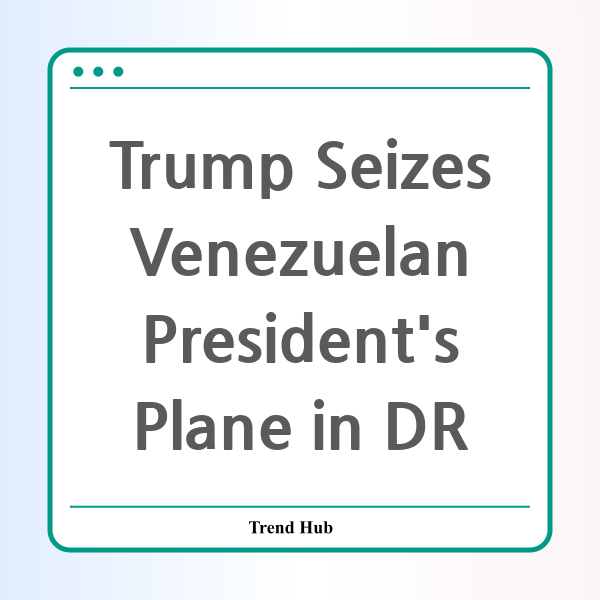* This website participates in the Amazon Affiliate Program and earns from qualifying purchases.

Will the Seizure of Venezuela's Presidential Plane Change the Game?
The political tension between the United States and Venezuela continues to escalate, particularly with the recent announcement from the Trump administration regarding the seizure of another plane owned by Venezuelan President Nicolás Maduro. This aircraft, a Dassault Falcon 200, is worth noting not just for its monetary value but also for its symbolic representation of the ongoing struggle between the two nations.
During a visit to Santo Domingo, the Dominican Republic, U.S. Secretary of State plans to officially announce the seizure. This event marks the culmination of a broader strategy by the U.S. aimed at undermining the Maduro regime, which it accuses of numerous sanctions violations and human rights abuses.
So, what does this mean for the international community and for Venezuela? The seizure represents a significant escalation in U.S. efforts to hold the Maduro administration accountable for its actions. The U.S. government alleges that the plane has been utilized extensively by Maduro and his top aides for international travel, including visits to countries like Russia and Cuba, all while allegedly dodging strict international sanctions.
For U.S. officials, the process of seizing the plane has been intricate. It required the approval of Senator Marco Rubio to bypass certain foreign aid regulations, enabling the U.S. to cover over $230,000 in storage and maintenance fees that had accrued. Rubio's approval showcases the political maneuvering that accompanies such international actions, as the U.S. intricately navigates its relationship with both Venezuela and the Dominican Republic.
Notably, this event follows closely on the heels of a successful diplomatic engagement by U.S. envoy Richard Grenell, who recently returned from Venezuela with six American detainees. This development indicates that while the U.S. pursues sanctions and seizures, it is also attempting to find diplomatic avenues for its citizens abroad.
The implications of this seizure extend beyond just aviation. They suggest an ongoing commitment from the U.S. to apply pressure on Maduro's administration. Furthermore, it sheds light on how international relations and conflicts are becoming increasingly complex, often involving an interplay of diplomacy, sanctions, and law enforcement actions.
In light of these events, many are left wondering: Can such actions by the U.S. government lead to real change in Venezuelan politics, or are they simply symbolic gestures in an ongoing conflict? The future of Venezuela remains uncertain as the international community watches these developments closely.
* This website participates in the Amazon Affiliate Program and earns from qualifying purchases.